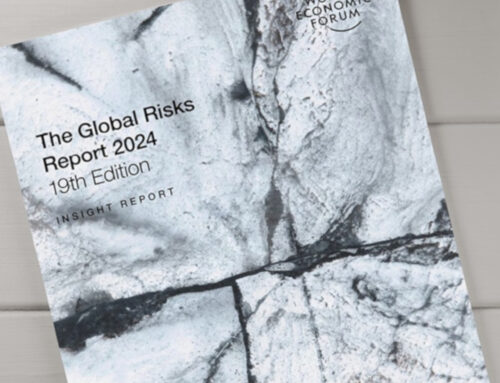

Excessive Lawsuits Cost Businesses
Share this
Chuck Jones is the president of Jones Coffee Roasters, an independent coffeehouse and wholesale roaster based in Southern California. Chuck also knows firsthand how frivolous lawsuits affect small businesses like his. For almost a decade, Chuck spent hundreds of thousands of dollars fighting a lawsuit that accused coffee companies like his of violating California’s Prop 65, which requires businesses to put cancer warning labels on products. The law is so broad that even the Happiest Place on Earth, Disneyland, has a cancer warning label in its parking lots.
The lawsuit against Chuck’s businesses claimed that coffeehouses needed to put warning labels on cups because coffee contains acrylamide, a naturally occurring chemical. But organizations like National Cancer Institute have suggested there is no evidence that exposure to acrylamide in foods is a cancer risk. Fortunately, a judge threw out the lawsuit last year, but the time and money Chuck spent in court defending his business almost destroyed his business.
Chuck’s story isn’t unique; abusive and expensive lawsuits hurt businesses of all sizes and in all types of industries. It’s why the U.S. Chamber Institute for Legal Reform, or ILR, has spent more than 20 years fighting for a fair and balanced litigation system. We’re the leading legal reform advocate for the business community at the local, state, federal, and even international levels.
ILR uses research, advocacy, and communications to spotlight how the abuses of our civil justice system come with actual costs and to correct those abuses. For example, in 2018, ILR released research that found that cost and compensation paid into the U.S. tort system totaled $429 billion, or 2.3 percent of GDP, in 2016. Yet, despite that jaw-dropping number, the study also found that only 57 percent of that went to plaintiffs; the rest went to attorneys’ fees and other administrative costs.
An expensive tort system has practical implications for consumers and businesses. Look no further than in Louisiana, where the state’s runaway lawsuit system has increased insurance costs for auto drivers and truckers. As a result, drivers in the Pelican State have some of the highest auto insurance rates in the country, and some insurance companies won’t write new policies because of the high number of lawsuits and massive payouts to plaintiffs’ lawyers. Over the years, ILR and our partners in the state have successfully advocated for reforms to help rid the state’s reputation of being a lawsuit paradise.
Legal reform isn’t only about driving down insurance costs for consumers. Economic growth depends largely on the fairness of our civil justice system, too. One of ILR’s biggest research papers is the Lawsuit Climate Survey: Ranking the States. The 50-state poll conducted by the Harris Poll asks general counsels, senior litigators, and other senior executives at major companies to rank each state’s lawsuit climate. When we released the 2019 survey, a record-high 89 percent of respondents said that a state’s litigation environment is likely to impact important business decisions at their company, such as where to locate or do business. States that want to attract job creators should note that too many lawsuits aren’t good for business.
Companies like Zurich want to stay focused on providing services to their customers, which is why ILR continues to advocate for legal reforms that protect consumers and the business community against abusive lawsuits.
By Shira Rawlinson
Executive Director of Communications, U.S. Chamber Institute for Legal Reform

Excessive Lawsuits Cost Businesses
Share this
Chuck Jones is the president of Jones Coffee Roasters, an independent coffeehouse and wholesale roaster based in Southern California. Chuck also knows firsthand how frivolous lawsuits affect small businesses like his. For almost a decade, Chuck spent hundreds of thousands of dollars fighting a lawsuit that accused coffee companies like his of violating California’s Prop 65, which requires businesses to put cancer warning labels on products. The law is so broad that even the Happiest Place on Earth, Disneyland, has a cancer warning label in its parking lots.
The lawsuit against Chuck’s businesses claimed that coffeehouses needed to put warning labels on cups because coffee contains acrylamide, a naturally occurring chemical. But organizations like National Cancer Institute have suggested there is no evidence that exposure to acrylamide in foods is a cancer risk. Fortunately, a judge threw out the lawsuit last year, but the time and money Chuck spent in court defending his business almost destroyed his business.
Chuck’s story isn’t unique; abusive and expensive lawsuits hurt businesses of all sizes and in all types of industries. It’s why the U.S. Chamber Institute for Legal Reform, or ILR, has spent more than 20 years fighting for a fair and balanced litigation system. We’re the leading legal reform advocate for the business community at the local, state, federal, and even international levels.
ILR uses research, advocacy, and communications to spotlight how the abuses of our civil justice system come with actual costs and to correct those abuses. For example, in 2018, ILR released research that found that cost and compensation paid into the U.S. tort system totaled $429 billion, or 2.3 percent of GDP, in 2016. Yet, despite that jaw-dropping number, the study also found that only 57 percent of that went to plaintiffs; the rest went to attorneys’ fees and other administrative costs.
An expensive tort system has practical implications for consumers and businesses. Look no further than in Louisiana, where the state’s runaway lawsuit system has increased insurance costs for auto drivers and truckers. As a result, drivers in the Pelican State have some of the highest auto insurance rates in the country, and some insurance companies won’t write new policies because of the high number of lawsuits and massive payouts to plaintiffs’ lawyers. Over the years, ILR and our partners in the state have successfully advocated for reforms to help rid the state’s reputation of being a lawsuit paradise.
Legal reform isn’t only about driving down insurance costs for consumers. Economic growth depends largely on the fairness of our civil justice system, too. One of ILR’s biggest research papers is the Lawsuit Climate Survey: Ranking the States. The 50-state poll conducted by the Harris Poll asks general counsels, senior litigators, and other senior executives at major companies to rank each state’s lawsuit climate. When we released the 2019 survey, a record-high 89 percent of respondents said that a state’s litigation environment is likely to impact important business decisions at their company, such as where to locate or do business. States that want to attract job creators should note that too many lawsuits aren’t good for business.
Companies like Zurich want to stay focused on providing services to their customers, which is why ILR continues to advocate for legal reforms that protect consumers and the business community against abusive lawsuits.
By Shira Rawlinson
Executive Director of Communications, U.S. Chamber Institute for Legal Reform




